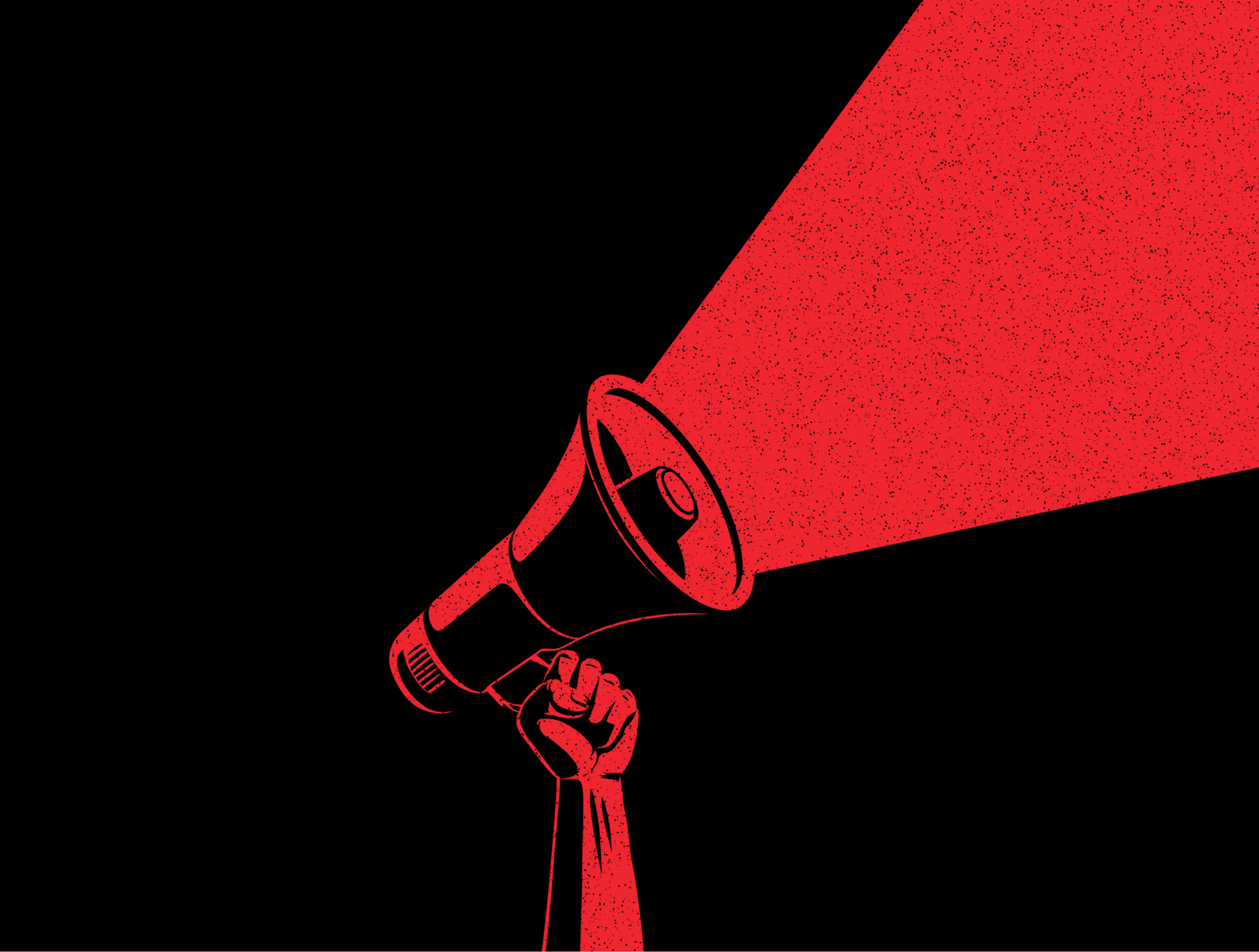When journalism is “undesirable”. Russia’s crackdown on independent media results in 81 fines for those “associated” with independent media
Art: Boris Khmelny / Mediazona
Russia considers nearly two hundred organizations “undesirable,” including human rights and religious groups, various Western foundations, and even conservation organizations like the Wild Salmon Center and the World Wide Fund for Nature (WWF). However, targeting independent media appears to be the most pressing issue for the authorities. In 2024, Russian courts issued 81 fines under Article 20.33 of the Code of Administrative Offenses to journalists and readers of publications deemed “undesirable,” Mediazona’s calculations based on data from district court websites show.
Penalties for “participation” (engaging in activities) in an organization deemed “undesirable” by Russian authorities have been around since in 2015. A first “violation” incurs a fine of 5,000–15,000 rubles, while a second instance within a year can lead to criminal charges and a prison sentence of up to four years.
Prosecutors interpret “participation” broadly, including not only working for a publication or providing comments for an article, but also simply reposting content—meaning ordinary readers are being fined.
Meduza accounted for the most number protocols in 2024 with 45. Radio Free Europe/Radio Liberty (RFE/RL) came in second with 12, followed by TV Rain with 9. In most cases, these protocols involve fines levied against individuals who contributed to content in some way, such as authors, editors, and experts.
Almost half (34) of all protocols were drawn up based on reports by the Yakutia regional Centre for Combating Extremism, colloquially known as “Centre E”: 23 against Meduza, seven against TV Rain, two against iStories, and one against Doxa. Yakutia’s Centre E uses these protocols to pressure journalists and politicians: operatives find hyperlinks to banned media in their social networks. For example, in December, a local court issued seven fines to Yelena Sokolova, the chief editor of V Yakutiya.ru, totaling 35,000 rubles.
Independent media have now surpassed religious organisations (such as Falun Gong, AllatRa, etc.) as the primary targets of “undesirable” fines—those groups were heavily fined in previous years. 2024 was also a record year in terms of the number of fines: the courts handed down 178 such rulings, 147 of which have been made public.
Help save Mediazona. We need you
Mediazona is in a tough spot—we still haven’t recovered our pre-war level of donations. If we don’t reach at least 5,000 monthly subscribers soon, we’ll be forced to make drastic cuts, limiting our ability to report.
Only you, our readers, can keep Mediazona alive.
Save Mediazona
Russia’s MoD says it has “found every second” soldier missing in Ukraine. Mediazona has so far counted 90,000 court claims seeking to have them declared dead Mediazona confrims deaths of 15 Russian officers. They all died in a fire in Zaporizhzhia region, four more are awaiting confirmation Strings attached. Violinist Asya Sorshneva given three‑year suspended sentence for donating $45 to Navalny’s “extremist” foundation “They will either kill me or cut me up”. Second Chechen woman killed in a month after fleeing abroad Searched and about to be fined. First man in Russia charged under new “searching for extremism” law after provider reports him to FSB